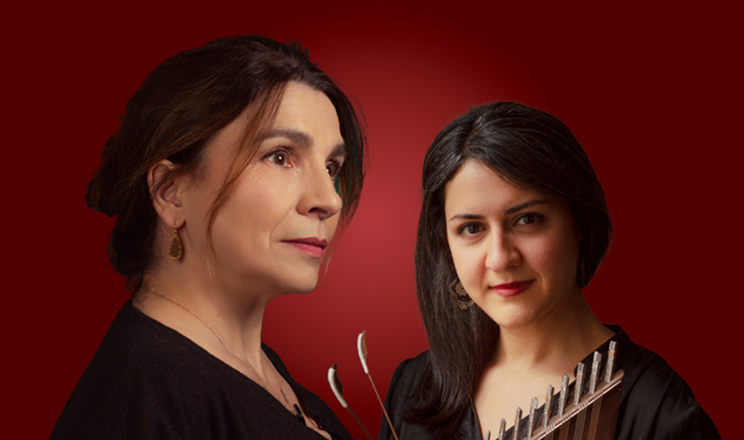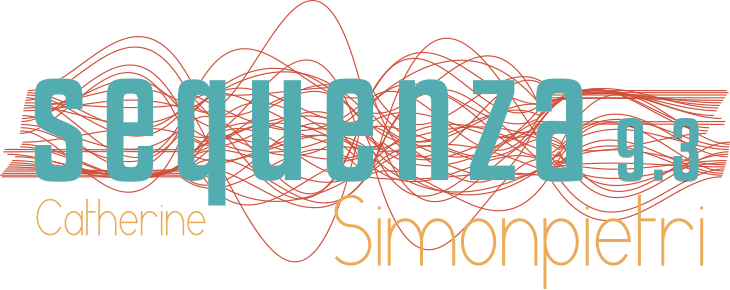Création en cours
SORORITIES
CATHERINE SIMONPIETRI & FARNAZ MODARRESIFAR
Voix et instrument(s)

sequenza 9.3 Farnaz Modarresifar santur traditional music oral tradition voice choir vocal ensemble choir concert singing world music lyrical singing lyrical singers polyphony
SORORITIES
Catherine Simonpietri & Farnaz Modarresifar
- 6 female voices
- Women's songs collected in Seine-Saint-Denis
- Running time: approximately 1 hour
Songs interwoven with santûr improvisations
Based on songs collected in Seine-Saint-Denis
- Albania: Asaman O trëndafili çelës - Alexandros Markeas
- Romania: Ciobănaș - Alexandros Markeas
- Greece: Mesopelaga - Alexandros Markeas
- Turkey: Ilgaz - Coralie Fayolle
- Palestine: Nami ya Hanin - Coralie Fayolle
- Israel: Yeroushalayim - Coralie Fayolle
- Egypt: Ah ya zain - Alexandros Markeas
- Albania: Ani mori nuse - François Saint-Yves
Female songs from the island of Corsica interwoven with santûr improvisations
Lullabies arranged by François Saint-Yves
- Nanna di Palleca
- O ciucciarella
- Nanna di u dila da i monti
- Vocero 1, Henri Tomasi - Extract from Douze chants de l'île de Corse
Commissions by Ensemble Sequenza 9.3
- Sororité, Alexandros Markeas/ text by Alice Fagard - excerpt from Cantate 2024
- Ackee, Diana Soh/ poem by Marion Aubert - excerpt from Célébrations 2023
- Sangu di Rosa, Lucia Ronchetti/ libretto inspired by Corsican voceri - Premiere 2021
Piece for a woman's voice a cappella
- Che si può fare? Farnaz Modarresifar - tribute to Barbara Strozzi
For this musical evocation of sisterhood, I chose an ensemble that would envelop the listener in warm timbres: six female singers from Ensemble Sequenza 9.3 in dialogue with the santûr, the traditional zither played by Iranian composer Farnaz Modarresifar.
The santûr, an itinerant instrument with a long tradition that reflects cultural exchanges between peoples, seemed to me the ideal companion for a journey across the Mediterranean basin - from Egypt to Greece, via Albania and Corsica.
The improvisations of Farnaz, a brilliant interpreter of the instrument, intertwine with the women's songs, adding the specific colour of Persian modes.
While the long resonance of the strings envelops the women's voices in rich harmonies, the percussive accents of the drumsticks respond to the bursts of laughter or cries of rage from the pens of Lucia Ronchetti and Diana Soh.
CATHERINE SIMONPIETRI

